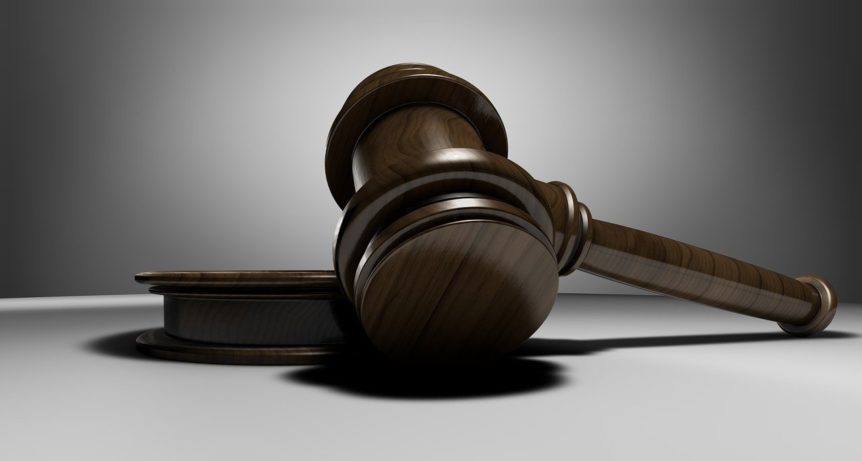You managed to convince your boss to give you much-needed time off from work this week. It’s only two days, but that’s more than you’ve had these past months. You plan to go to Wine Country and spend that time wining and dining at a luxury resort you’ve been dying to visit all year.
As you’re packing for your short trip, you hear a knock at the door. You head towards it, curious about who it could be since you were not expecting anyone over. You open it to find a young man waiting with a brown envelope in hand. He asks you to confirm your name – which you do. He then proceeds to hand you the mysterious envelope before exclaiming, “You’ve been served!” as he turns to walk away.
Feeling slightly confused, you close the door behind you, tear open the envelope, and examine its contents. As luck would have it, it’s a subpoena to appear in court on the precise day you’re supposed to be in Napa Valley.
A whirlwind of thoughts floods your mind. Can you ignore it and still go on your trip? What happens if you ignore a subpoena? Here’s everything you need to know.

Can You Ignore a Subpoena?
First off – what is a subpoena? A subpoena, or court summons as it is sometimes called, is a legal document issued by a judge that orders the recipient to comply with a very specific request from the court.
It could be a demand to present certain items or documents. It could be a request for your direct participation in an ongoing case as a witness. In other instances, it could be issued to compel you to allow the police to inspect your premises. Either way, when a court summons you, you have no choice but to oblige.
A subpoena is much more than a small inconvenience. So, if you were wondering what happens if you miss a court date? Well, you probably don’t want to find out. You risk facing punishment for ignoring the summons.
You might be in contempt of court, which is punishable by jail time, a fine, or both. At the very least, you need to accept the subpoena and formally challenge its terms by informing the court about your reservations.
Serving a Subpoena
There are several ways in which a subpoena can be served. It is usually done by an officer of the court or by a certified process server. This can be done through certified mail, email, or by hand.
There have been instances where subpoenas have been served to defendants by the court through alternative electronic means such as WhatsApp, although this isn’t as common. Once you receive it, though, you’re legally bound by its terms.
There are generally three different types of subpoenas you could get served with.
- A witness subpoena – This is a court order that requires an individual to appear in court in person on a specific date. This is usually because they are required to give witness testimony in an ongoing trial.
- A subpoena Duces Tecum – Duces Tecum is a Latin phrase that directly translates to “you shall bring with you.” This kind of subpoena compels the recipient to produce documents, records, or any other publications in their possession, at a specific date or place, in a deposition or court hearing.
Complying with this subpoena may involve mailing or emailing the documents without necessitating an in-person appearance.
- A deposition subpoena – This is a court order that compels an individual or entity that is not a party to a lawsuit to produce documents, records, or any other publications requested by one of the parties in the lawsuit and/or appear at a deposition on a specific day to answer questions.

The main difference between a Subpoena Duces Tecum and a deposition subpoena is that the evidence produced in the latter form part of the trial discovery process. This evidence may not be used during the actual court proceedings.
Spoliation of Evidence
Whether or not they are party to the court proceedings, every individual or entity must preserve evidence that may be relevant to a dispute. This is a well-documented common law principle.
Spoliation of evidence is a term that’s often used in civil litigation where one party to a suit uncovers or suspects that the other side has accidentally, negligently, or deliberately destroyed evidence that would be deemed relevant to the case.
Spoliated evidence can include documents, physical objects, photographs, or electronically stored information contained in servers, phones, or even internal and external drives. Here’s a subpoena example to illustrate what spoliation of evidence looks like.
You’re suing a pharmaceutical company for selling you medication that caused adverse side effects, which were not explicitly stated on the packaging. The drug company vehemently denies these allegations stating that they have not received any complaints from other patients using the same medication.
You later receive a subpoena to produce the specific drug you were on. Unfortunately, however, the bottle containing the medication gets lost in transit. The other party would term this as a case of spoliation of evidence.
Can You Subpoena Text Messages?
Text messages often form a critical part of child custody and divorce litigation. However, it is usually quite difficult to obtain text messages through court proceedings, even with a subpoena to the cell carrier.
Carriers often use the Stored Communications Act – a federal law that requires the carrier to get consent from the cell phone subscriber before they can provide the court with the text messages.
What Happens if a Subpoena Is Not Served?
When you receive a subpoena, you either have to comply with its terms or challenge it through a legal process. If you fail to respond, you’ll be in contempt of court, which is punishable by jail time, a hefty fine, or both.
But, what happens if you never get served court papers? Can you still be held in contempt? The short answer is – no, you can’t. Keep in mind, however, that it is possible to get served without you knowing about it.
For instance, if the subpoena is served to someone at your residence, like your 16-year-old child, who then forgets to tell you about it, that still counts as service. So, you could still be in contempt of court if you end up missing the court date or not responding to the summons, even if you were not aware of it.
Get Help From a Criminal Defense Attorney
If you’ve been served with a subpoena, you need to get in touch with a criminal defense lawyer as soon as possible to advise you on the next step to take. But, whatever you do, do not ignore it, or else you might end up with a bigger problem on your hands.
If you have any legal queries, chat online with a Laws101.com attorney today.
